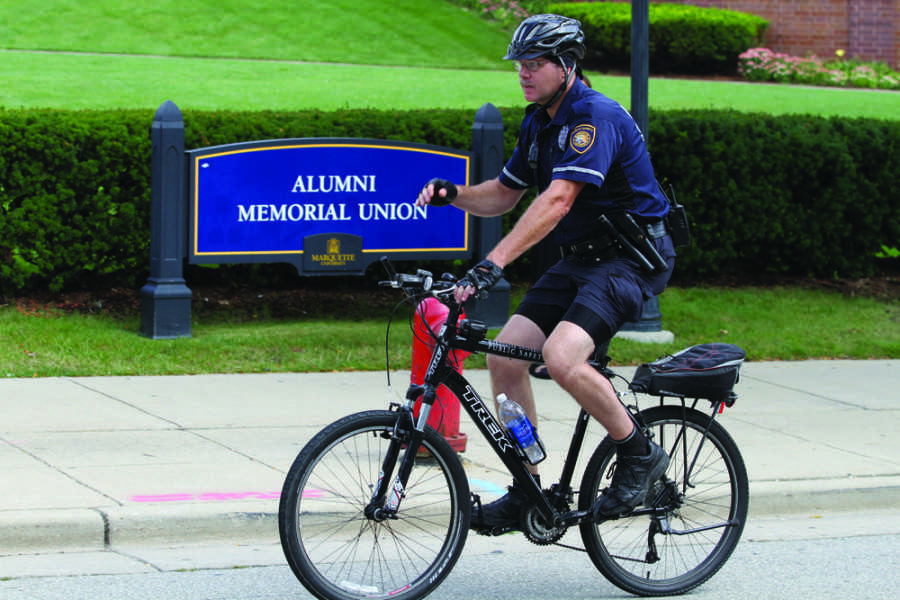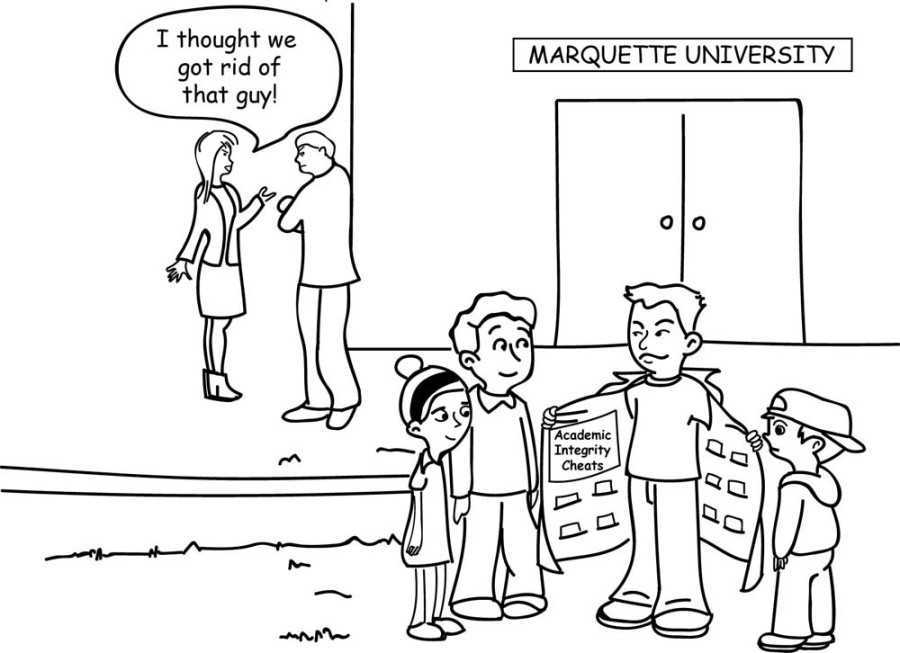At Marquette Student Government’s first official senate meeting with its newly elected representatives last Thursday, MUSG heard a presentation on the university’s revised alcohol policy by Assistant Dean of Students Erin Lazzar.
One of the major changes Lazzar outlined was a subtle change in the policy’s wording. Rather than punishing students for merely being “in the presence” of alcohol, the university has decided to discourage “complicity.”
Lazzar defined complicity as “condoning, facilitating, or encouraging another person’s or group’s behavior that violates standards of conduct” and said students should do one of three things if they are around others who are drinking in residence halls. In order to avoid breaking the complicity policy, students should leave, confront those who are drinking or report the illegal behavior.
Another hot topic Lazzar spoke about pertained to students who are over the age of 21. The policy states that “intoxication of a person, regardless of legal drinking age” is a violation. However, Lazzar said this rule will probably be applied in only extreme cases.
“For the most part, students who are of legal drinking age who are drinking in low-risk ways … we aren’t concerned about,” Lazzar said. “We are concerned, even with our students who are of legal drinking age, for students who are consuming alcohol to the point that they are risking their, or someone else’s, safety.”
Lazzar also noted that this rule is not actually new to the alcohol policy and has been around for years. The only violation added this year is the statement about “hosting a gathering in the residence halls that involves alcohol.”
Before deciding to institute these changes and additions, Marquette conducted an alcohol benchmarking survey at other Jesuit institutions around the country and local public universities. Lazzar said among the schools surveyed, Marquette was the only one not fining students for alcohol violations.
The absence of alcohol-related fines at Marquette is now a thing of the past. The new policy outlines four categories of violations of differing severity. Students who break any of those rules can expect anywhere between a $50 fine and university warning to a $750 fine and immediate suspension, depending on the crime.
Lazzar also said Marquette has made other changes outside of the student handbook regarding alcohol on campus. She said the university has invested in prevention programs, intervention programs, late night alternatives, counseling options and social norming campaigns, among other things, to encourage students to make responsible decisions about alcohol.
After her presentation, Lazzar took time to answer questions. Senator Kyle Whelton, a sophomore in the College of Arts & Sciences, raised the issue of medical amnesty. He said students who require medical attention after a night of drinking should not have to return from the hospital with a fine looming over their head. That way, Whelton said, students will be more likely to call an ambulance in the case of an emergency.
Lazzar responded that student responses on AlcoholEdu have not dictated a need for such a program.
“We have asked questions on institutional surveys … about, ‘How likely are you to call for help for a friend? If not, why not?’” she said. “And the response to that is very very rarely, ‘I don’t want my friend to get in trouble’ or ‘I don’t want to get in trouble.’”



